Exploring the Future of Healthcare: Innovative Medication Carts at the 138th China Import and Export Fair 2025
As the healthcare industry continues to evolve, innovative solutions such as medication carts are becoming increasingly essential in enhancing patient care and streamlining hospital operations. According to a recent report by Grand View Research, the global market for medication management systems, including medication carts, is expected to reach USD 8.8 billion by 2025, driven by the rising demand for improved medication administration and safety. At the 138th China Import and Export Fair in 2025, healthcare professionals and industry leaders will explore cutting-edge designs and technologies that optimize the functionality of medication carts. These advancements not only reduce the likelihood of medication errors but also improve overall efficiency in healthcare settings. As we delve into these innovations, it is crucial to consider the roles that medication carts will play in shaping the future of healthcare and enhancing the quality of patient outcomes.
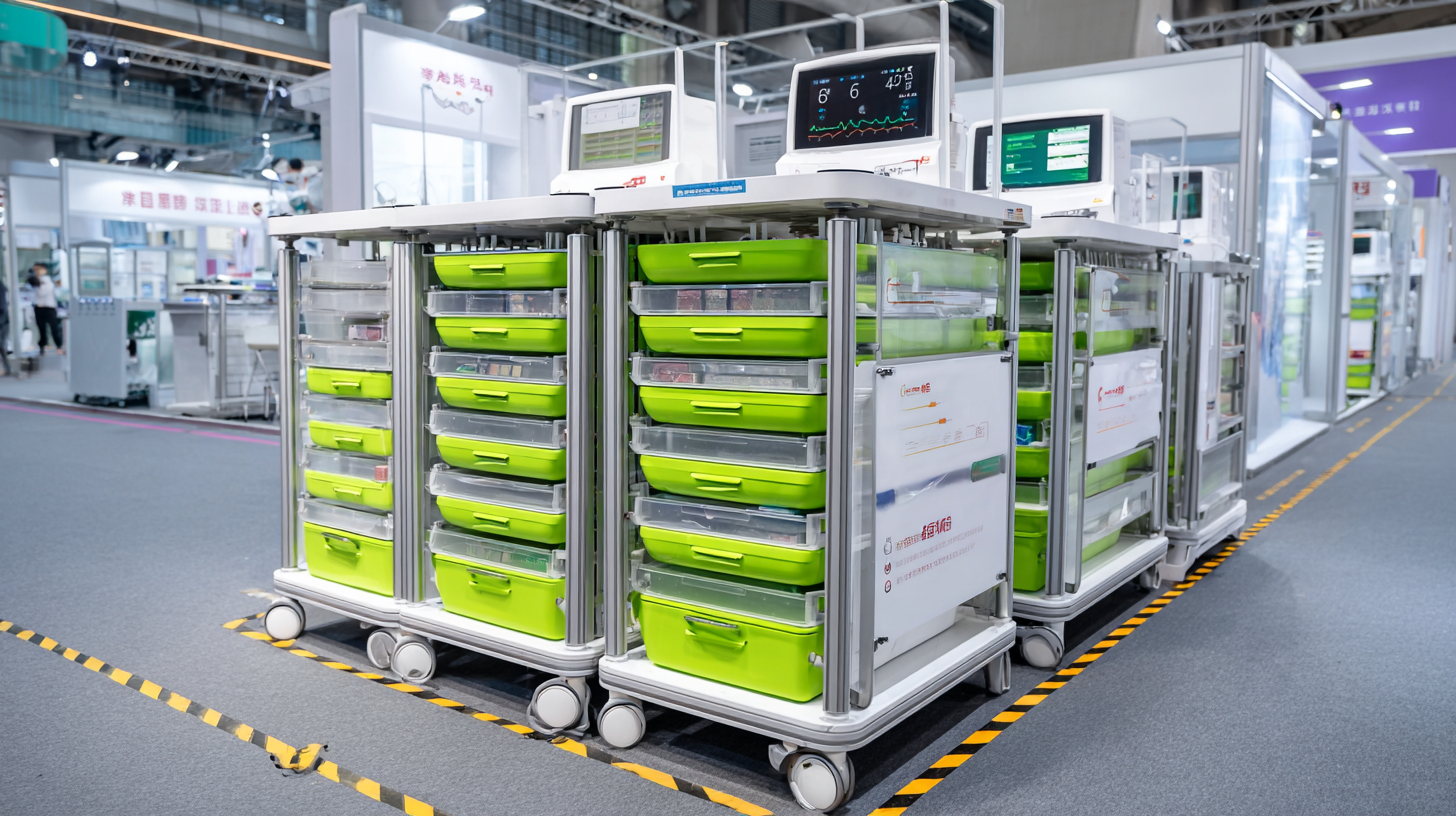
Innovative Features of Medication Carts Showcased at the 138th China Import and Export Fair
At the 138th China Import and Export Fair, innovative medication carts showcased a glimpse into the future of healthcare. These carts are not only designed for efficiency but are also integrated with advanced technology to enhance patient care. Features such as telehealth capabilities, automated medication dispensing, and intelligent inventory management stand out as game changers in the medical field.
Tips for healthcare facilities considering these innovations: Start by assessing your current medication management process and identify areas for improvement. Evaluate the technology of medication carts and how they can integrate with existing systems. Additionally, train staff thoroughly to maximize the benefits of these cart technologies.
The fair has also highlighted a broader trend towards sustainability and intelligent solutions in healthcare. Advances in manufacturing and green technology are reshaping the industry, paving the way for a more efficient and environmentally friendly approach to patient care. Embracing these new tools will not only improve operational efficiency but will also contribute to better patient outcomes.
Exploring the Future of Healthcare: Innovative Medication Carts at the 138th China Import and Export Fair 2025
| Feature | Description | Benefits | Estimated Cost (USD) |
|---|---|---|---|
| Smart Dispensing System | Automated dispensing of medications, reducing human error. | Increases accuracy; saves time. | $3,000 |
| Integrated Patient Monitoring | Built-in monitoring tools for real-time patient data collection. | Improves patient care; swift response to emergencies. | $4,500 |
| Mobile Compatibility | Compatibility with mobile devices for remote access. | Enhanced flexibility; remote consultations. | $2,000 |
| Customizable Storage | Adjustable compartments for different medication types. | Organized storage; easier access to items. | $1,500 |
| Advanced Security Features | Biometric access and tracking of medication usage. | Enhanced safety; reduced theft. | $5,000 |
Impact of Technology on Medication Management in Healthcare Settings
The integration of technology in healthcare has revolutionized medication management, offering innovative solutions that enhance efficiency and safety. At the 138th China Import and Export Fair 2025, the spotlight is on advanced medication carts that incorporate sophisticated tracking systems, automated dispensing, and real-time data analytics. These innovations streamline the medication administration process, significantly reducing the potential for human error and improving patient outcomes.
**Tips for Effective Medication Management:**
1. **Embrace Digital Tools:** Encourage healthcare facilities to adopt digital medication management systems that allow for secure access to patient information and medication records, ensuring that healthcare providers are equipped with the latest data.
2. **Train Staff on New Technologies:** Regular training sessions should be conducted to familiarize healthcare staff with the new medication cart technologies, promoting confidence and proficiency in their use.
3. **Implement Standard Protocols:** Establishing standardized protocols for medication administration can help in maintaining consistency and safety in the use of innovative carts, ensuring that both staff and patients benefit from technological advancements.
The future of medication management lies in these technological innovations that not only enhance operational efficiency but also prioritize patient safety and care quality.
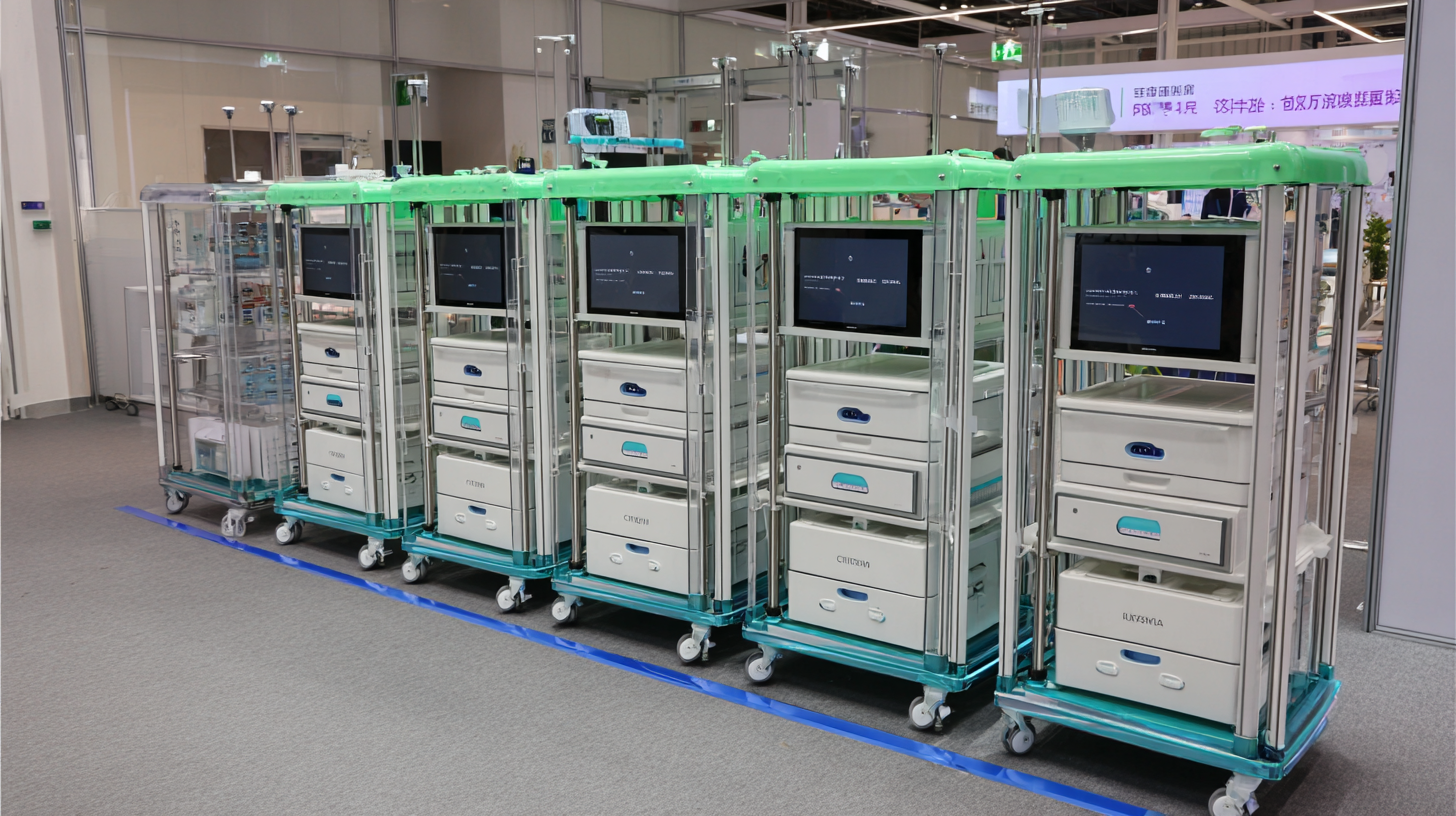
Sustainability in Healthcare: Eco-Friendly Solutions in Medication Cart Design
The increasing focus on sustainability within healthcare is driving innovation in medication cart design, as highlighted at the upcoming 138th China Import and Export Fair in 2025. Eco-friendly solutions are becoming critical in the development of medication carts, with manufacturers exploring materials and technologies that minimize environmental impact. The integration of sustainable practices not only addresses waste reduction but also aligns with broader healthcare goals of enhancing operational efficiency while promoting health.
For instance, initiatives such as the recent recognition of sustainable healthcare packaging reflect a growing acknowledgment of the role that eco-conscious designs can play in the industry. By utilizing innovative materials and enhancing product lifecycle management, companies can ensure that their products contribute positively to the environment. This aligns with global movements that seek to address climate change and promote healthier living. As the healthcare sector embraces these sustainable solutions, the future of medication carts will likely showcase advancements that prioritize both patient care and ecological responsibility, ultimately leading to a more sustainable healthcare environment.
Innovative Medication Carts and Sustainability in Healthcare
Enhancing Patient Safety: The Role of Medication Carts in Modern Healthcare
In modern healthcare, patient safety has become paramount, with innovative solutions being developed to ensure the well-being of individuals undergoing treatment. Medication carts play a crucial role in enhancing patient safety by streamlining the medication administration process. These carts are designed to provide organized, efficient access to medications, minimizing the chance of errors during critical moments. By implementing state-of-the-art technology, such as barcode scanning and automated dispensing systems, healthcare providers can accurately track and manage medications, thus safeguarding patients against potential adverse drug events.
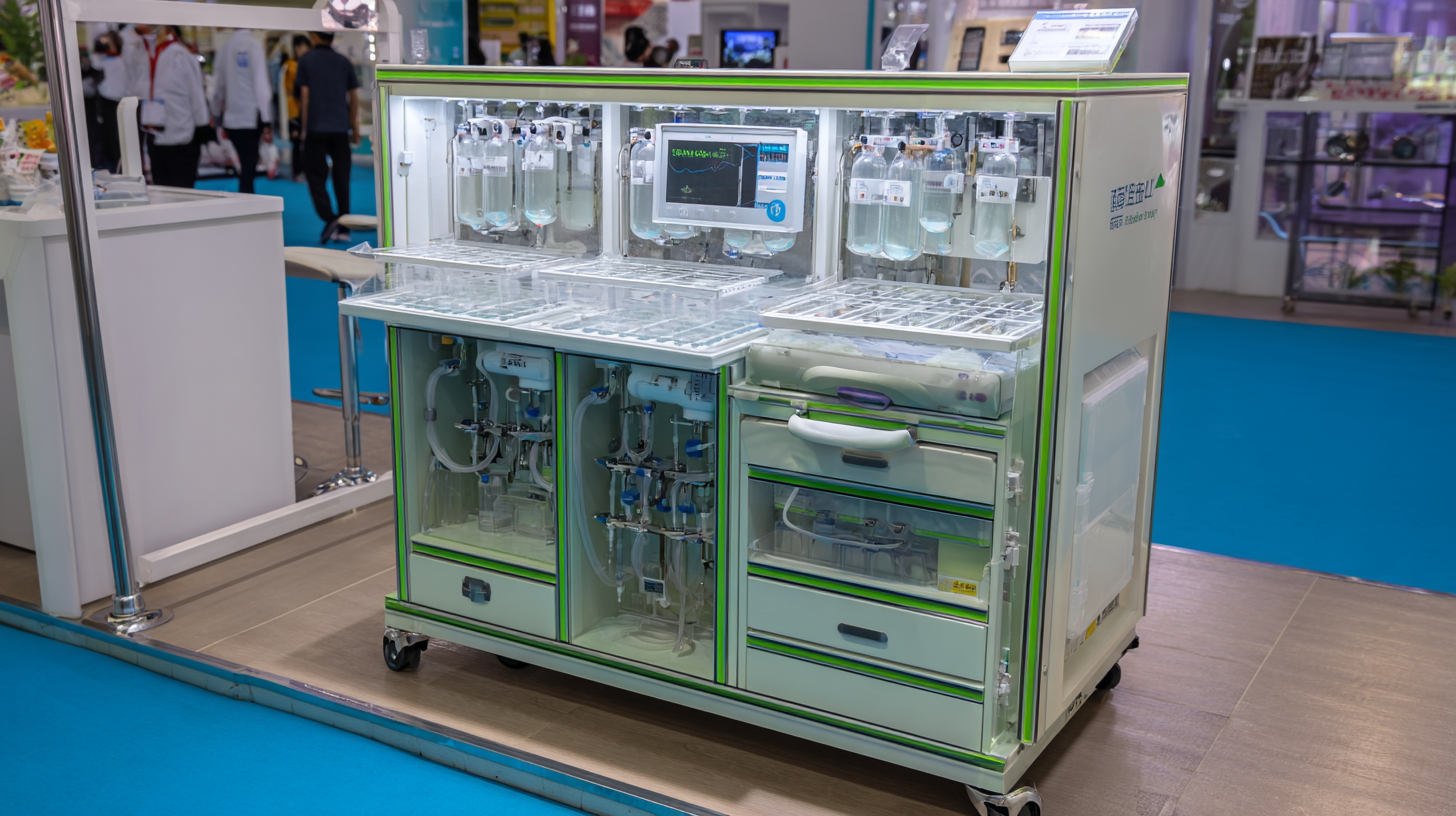
Moreover, medication carts contribute to improving workflow within healthcare settings. By reducing the time spent searching for medications and facilitating quick access to essential drugs, these carts empower healthcare professionals to focus more on direct patient care. This is particularly vital in high-pressure environments such as hospitals, where every second counts. As we set our sights on the future of healthcare, the importance of integrating advanced medication carts cannot be overstated, as they stand at the intersection of technology and patient safety, promising a new era of efficient and reliable medical care.
Future Trends in Healthcare: Integrating Smart Technologies into Medication Carts
The future of healthcare is being significantly transformed by the integration of smart technologies into medication carts. As we move towards a more digitized medical environment, these innovative carts will be categorized by various parameters such as weight and operational technology.
For instance, medication carts weighing less than 2 kg may utilize remote operation technologies, suitable for small facilities or home care situations where flexibility is essential. In contrast, carts ranging from 2 to 5 kg may adopt semi-autonomous features, allowing for increased efficiency in hospitals that require both manual input and automated processes.
Moreover, medication carts exceeding 5 kg are likely to embrace fully autonomous systems, offering advanced functionalities such as real-time data analytics and artificial intelligence-driven inventory management.
This integration not only streamlines operations but also enhances patient safety by reducing human errors in medication distribution. As the healthcare sector continues to evolve, these advancements in medication cart technology will play a crucial role in reallocating healthcare resources, optimizing workflow, and ultimately improving patient outcomes.
Related Posts
-
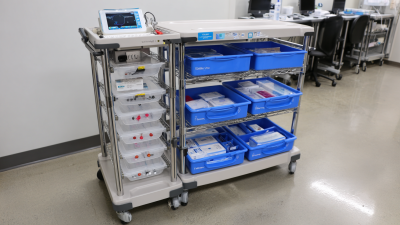
Future Trends in Best Medication Carts Market Analysis 2025 with Key Data and Practical Insights
-

Solutions for Efficient Storage with Medical Supply Carts
-
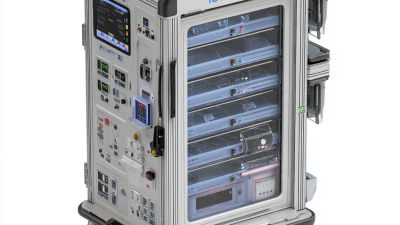
Explore the Unique Features and Applications of the Best Isolation Cart for Global Buyers
-
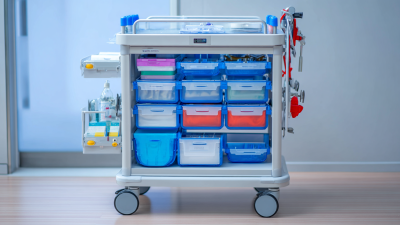
7 Essential Tips for Choosing the Best Rolling Medical Cart
-

The Ultimate Guide to Choosing the Perfect Stainless Steel Medical Cart for Your Healthcare Facility
-

How to Choose the Right Medical Trolley with Drawers for Your Healthcare Facility
